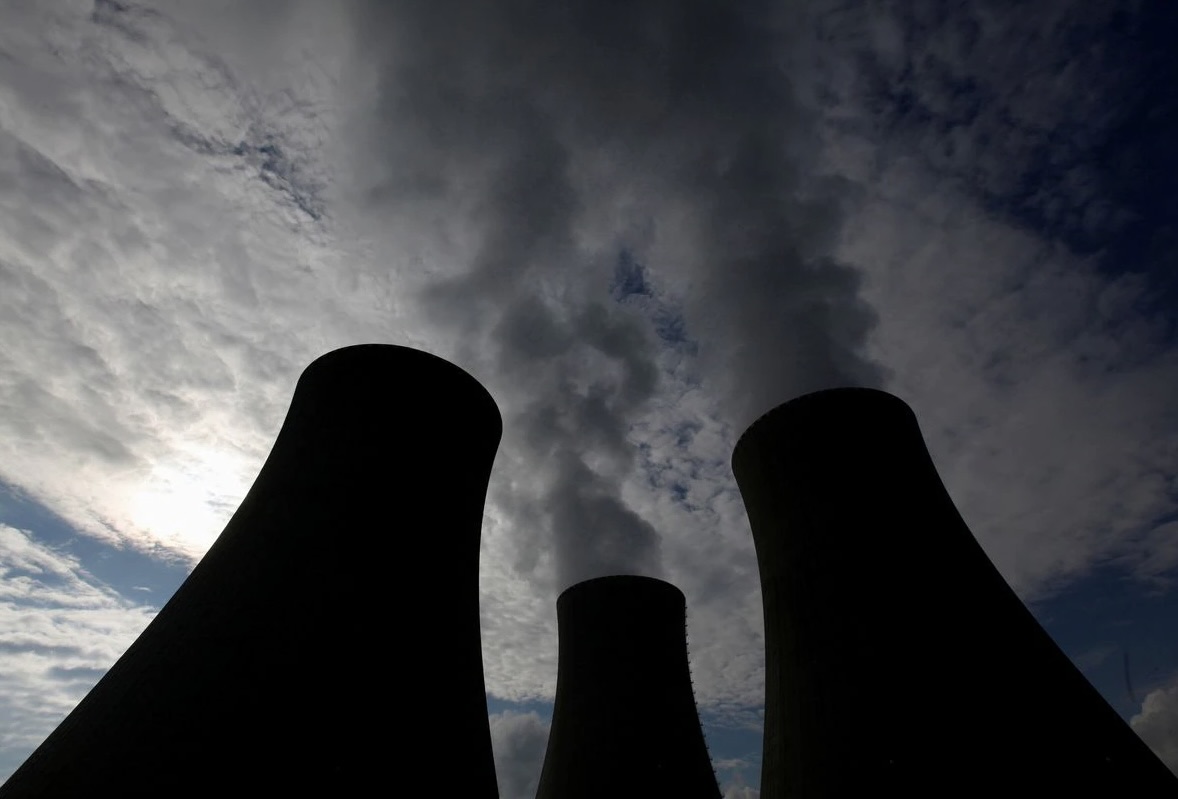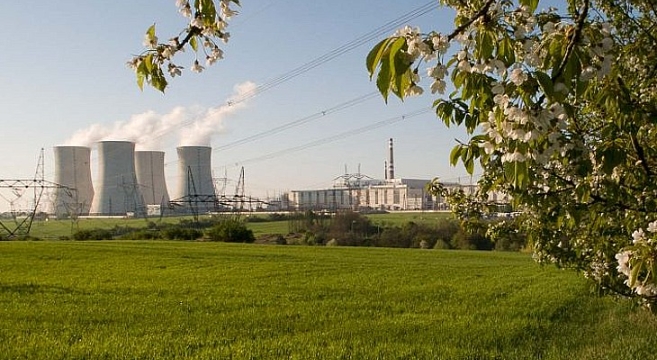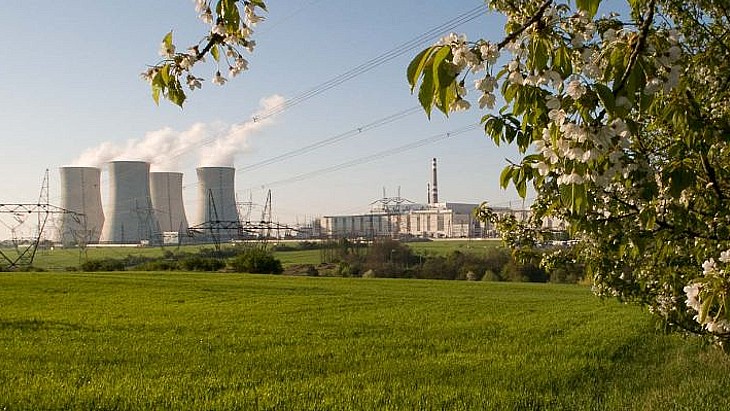 Steam billows from the cooling towers of the Temelin nuclear power plant near the South Bohemian town of Tyn nad Vltavou, Czech Republic, June 20, 2016. REUTERS/David W Cerny
Steam billows from the cooling towers of the Temelin nuclear power plant near the South Bohemian town of Tyn nad Vltavou, Czech Republic, June 20, 2016. REUTERS/David W Cerny
The Czech industry ministry has proposed a cap on power producers' revenue ranging from 70 to 230 euros per megawatt hour, depending on the source, according to a legislative document published by the government.
The lowest cap will be on revenue from nuclear power.
The government aims to raise 15 billion crowns ($613.25 million) for the budget next year through the scheme, according to previous government estimates.
The proposal sent shares in the largest power utility CEZ (CEZP.PR) down 2%.
The revenue ceilings are based on the European Union's agreement to take revenue from electricity producers exceeding 180 euros per megawatt hour to fund national schemes compensating customers for soaring power prices after Ukraine.
Countries can move the general ceiling in both directions depending on the type of power plants but in total countries' respective caps are expected to raise over 117 billion euros across the EU.
The Czechs opted to take 90% of the excessive revenue rather than the full 100% allowed by the EU regulation, which the industry ministry said was to keep producers motivated to supply at times of high demand.
The proposal lowers the general 180 euro/MWh cap, above which the revenue will be taken by the state, to 70 euros for nuclear power plants, which are operated by CEZ (CEZP.PR).
Shares in CEZ dropped 2% to 795 crowns, bucking a rise in Czech blue chip shares on Monday, which Komercni Banka analyst Bohumil Trampota said was in reaction to the low cap on nuclear power.
The ceiling for renewable sources will be at 180 euros. For smaller lignite-fired plants with output up to 140 megawatts, it will be 170 euros, while the ceiling for large lignite plants will be 230 euros.
For biomass power plants the ceilings are 200 and 230 euros, depending on the type of fuel.
The draft legislation proposes to impose the revenue cap from Dec. 1 until the end of 2023, half a year longer than the EU regulation.
The ministry plans to fast-track the bill to meet the scheme's intended Dec. 1 launch.
Separately, the Czech lower house of parliament on Friday approved a windfall tax on large firms in several sectors. By including electricity sector and banks, it goes beyond the EU regulation on the subject.
"The entire regulation goes far beyond the framework approved by the European Commission... It is likely to trigger legal actions and lawsuits after its final approval," J&T Banka analysts said in a note.
($1 = 24.4600 Czech crowns)
($1 = 1.0062 euros)








